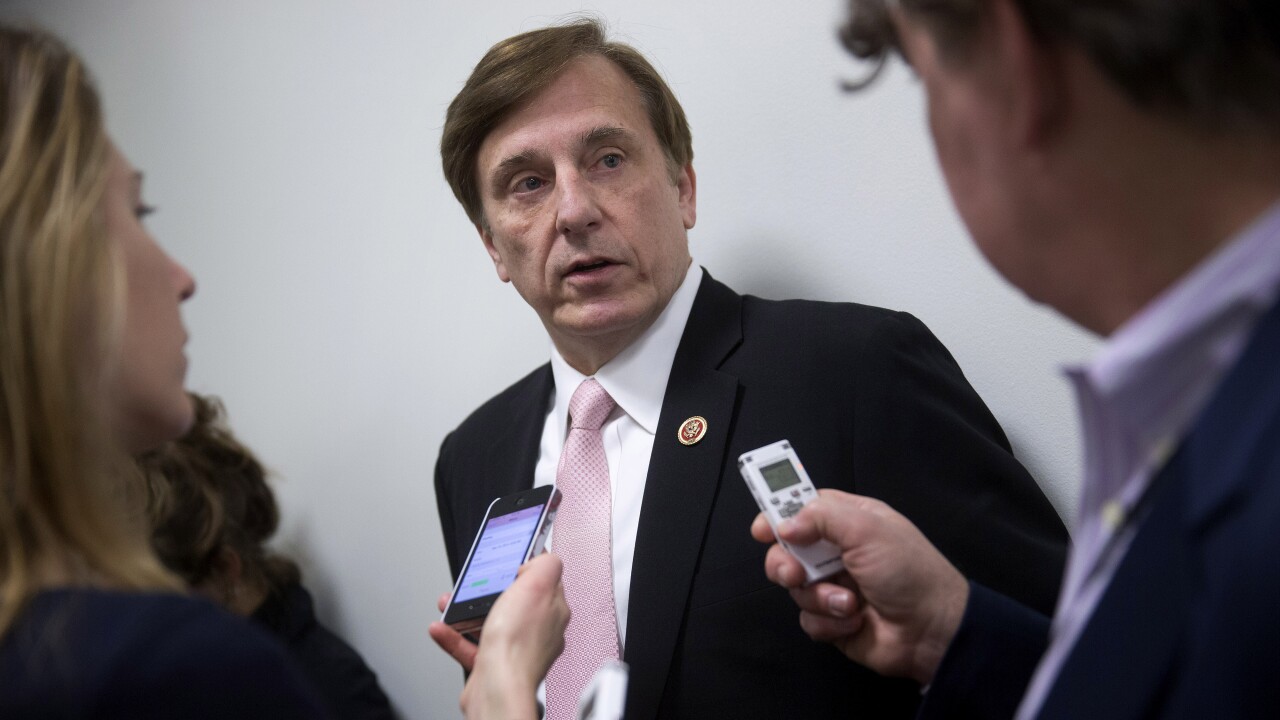WASHINGTON — New York Federal Reserve Bank President William Dudley Monday spoke out against calls for the Fed to ease the pace of its aggressive asset purchases, arguing not only has the effect of $85 billion a month in bond buys exceeded his expectations, but that greater harm would come from prematurely shifting to a policy stance that lacks the firepower to ensure a sustainable economic recovery.
He also slammed the negative impact of an even more restrictive fiscal policy on growth this year, saying that economic activity would be even stronger if not for the toll on activity from, among others, the hike in payroll taxes and the $85 billion sequester.
"Currently we are falling well short of our employment objective and the restrictive stance of federal fiscal policy is a factor," Dudley said in remarks prepared for The Economic Club of New York.
He added that the Fed's policymaking Federal Open Market Committee is also falling short on its inflation mandate, although by a considerably smaller margin. "As a consequence, we need to keep monetary policy very accommodative," Dudley said.
As vice chair of the FOMC, Dudley holds a permanent voting position on the committee. He acknowledged that there are risks linked with the Fed's unconventional balance sheet policies, but countered that: "I see greater cost and risk in moving prematurely to a policy setting that might not prove sufficiently accommodative to ensure a sustainable, strengthening recovery. I remain confident that the benefits of a stronger and earlier economic recovery will trump the costs associated with our unconventional monetary policy measures."
Assessing the progress so far of the program buying $45 billion a month in U.S. Treasuries and $40 billion in mortgage bonds, Dudley said his conclusion is that "efficacy has been as high or higher than I expected at the onset of the program, and costs the same or lower."
He said the impact of improvement in financial conditions on the real economy has been stronger than expected. And as for the impact of the Fed's purchases on the MBS issuance — "so far, so good," Dudley said.
Dudley did note that information received since the program's inception in September suggests "there is slightly greater reason for concern about potential excesses in certain corners of the financial markets," as in particular "some areas of fixed income — notably high-yield bonds and leveraged loans — do seem somewhat frothy."
He downplayed, however, what the cost to society would be from such bad outcomes, with the threat to financial stability "relatively low."
The recent spate of employment-related data have some predicting an accelerated pace of job creation in the coming months, but Dudley stressed caution.
The U.S. Bureau of Labor Statistics reported 236,000 jobs added in February, while the 4-week moving average for initial jobless claims is at 339,750 — a five-year low.
However, "It is premature to conclude that we will soon see a substantial improvement in the labor market outlook," Dudley said.
He said the FOMC's policy is based on the outlook for the labor market, not the level of employment or unemployment today. "In this context I note that the recent improvement in payroll employment growth, which gets much of the attention, is out-sized relative to the growth rate of economic activity that supports it," he added.
This is not the first time such a discrepancy has occurred, Dudley continued, harking back to similar points in the last two years.
"When this happened in 2011 and 2012, employment growth subsequently slowed," he said. "Because growth this year will be constrained by fiscal consolidation, there is a risk that this could happen again."
In addition, he said other important indicators including the employment-to-population ratio and job-finding rates are essentially unchanged, which suggests that "the labor market is far from healthy."
As for the second arm of the Fed's dual mandate, inflation, Dudley concluded that the risk prices could significantly exceed the FOMC's 2% objective "is quite low over the next few years, even if the recovery were to strengthen considerably."
As a result, Dudley counseled that the FOMC should calibrate the total amount of asset purchases "to that needed to deliver a substantial improvement in labor market conditions, by allowing the flow rate of purchases to respond to material changes in the labor market outlook."
And while that time is not yet now, "At some point, I expect that I will see sufficient evidence of economic momentum to cause me to favor gradually dialing back the pace of asset purchases," he added.
Casting an eye over current economic conditions, Dudley said the fundamentals underpinning the economy are improving and monetary policy is gaining additional traction. He described the housing market as a whole as "clearly rebounding," with rising house prices likely to further encourage loosening of credit and appraisal standards.
Outside U.S. borders, the international economic outlook has improved somewhat, Dudley said, although recent developments in Cyprus highlight the challenges that remain.
On the other hand, all this good news may not immediately lead to stronger growth because of the recent increase in fiscal restraint, he warned.
"Why isn't the U.S. economy growing more quickly? The fact that fiscal policy has turned significantly more restrictive is the most important reason," Dudley said.
He went on to predict that rise in payroll tax rates, the rise in high income tax rates, the increase in taxes associated with the Affordable Care Act, and now the sequester — if sustained — will result in fiscal drag of about 1¾ percentage points of GDP in 2013.
Dudley forecast growth in the first half "will be sluggish as the fiscal contraction blunts the economy's forward advance," adding that while first quarter GDP growth will likely rebound to a 2% to 3% annualized rate, this will be due in large part to temporary factors such as the post-Hurricane Sandy reconstruction.
"I'd also emphasize that there remains considerable uncertainty about the outlook," he added. "In particular, we can't be confident about how much fiscal drag will blunt growth. Ultimately, though, the drag should abate. When that happens — presumably later this year, the economy should strengthen."
Market News International is a real-time global news service for fixed-income and foreign exchange market professionals. See





